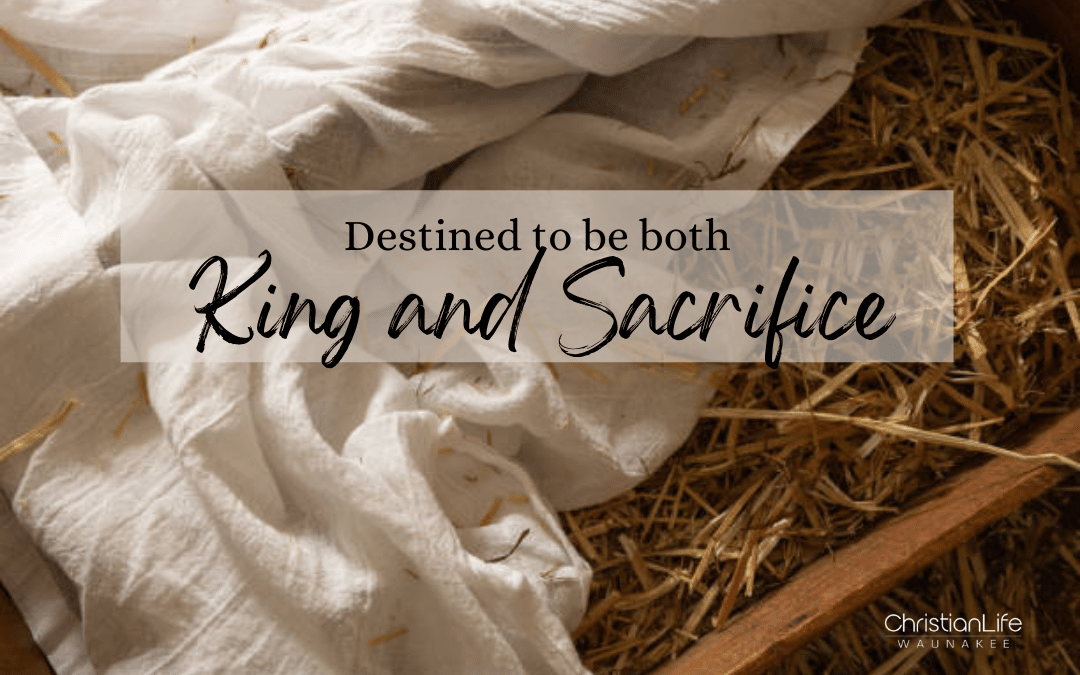In my opinion, few Christmas carols capture the heart of the Gospel message as well as We Three Kings. Beyond the song’s words, I just can’t resist the bittersweet minor-to-major key shift in the music. It perfectly captures the mixture of sorrow and joy that encapsulates the Gospel story. The lyrics are based on Matthew 2:1-12 (NIV), where “Magi from the east” travel to find the newborn king Jesus and worship Him. They bring “gifts of gold, frankincense and myrrh.” In We Three Kings, each “king” explains why he has chosen that specific gift. We Three Kings was originally written and composed by John Henry Hopkins Jr. in 1857 for use in a Nativity drama performance. It’s still popular over a century and a half later. Unfortunately, many people only know the first verse of the song. They miss out on the complete picture all five verses give together. Are all the details perfect? Were there necessarily three kings? Is “Orient” the best word to use here? Probably not. But the song still beautifully shows how the three gifts each express something about the nature and work of Jesus Christ.
“Gold I bring to crown Him again,
King forever, ceasing never,
Over us all to reign.”
The first king brings gold. Hopkins thought this might signify royalty. The Magi were well aware that the child being born would be the king of the Jews, but we also know that all people will one day recognize Jesus as their King. Revelation 19 depicts Jesus as a warrior riding on a white horse: “On his robe and on his thigh he has this name written: King of Kings and Lord of Lords” (19:16, NIV). Although born in humble circumstances, the child that slept in a manger will one day be Ruler of all.
“Frankincense to offer have I.
Incense owns a Deity nigh;”
The second king brings frankincense. Frankincense is a resin that comes from Boswellia trees. When it’s burned, it produces a strong, sweet fragrance. It was used for various purposes such as worship and medicine and is still in use today. In Leviticus, God instructed the Israelites to use frankincense in some of their offerings as a “pleasing aroma to the Lord” (Leviticus 2:2, 6:15, NIV). Hopkins suggests that the gift of frankincense was a deliberate callback to the worship of the Lord through sacrifices, identifying Jesus as “Deity.” In possibly one of the most wonderful and strange paradoxes of our faith, Jesus is fully human but also fully God Himself.
“Myrrh is mine; its bitter perfume
breathes a life of gathering gloom;
sorrowing, sighing, bleeding, dying,
sealed in the stone-cold tomb.”
Finally, the last king brings myrrh—another fragrant tree resin used for its scent and medicinal properties. According to John 19:39, myrrh was one of the spices used in Jesus’ burial. He was also offered “wine mixed with myrrh” during His crucifixion, but He would not drink it (according to Mark 15:23, NIV). In We Three Kings, this gift–pointing to the cross–is the most bittersweet of all. We don’t know if the Magi knew this, but Jesus, who was God and the King of Kings, willingly became human to die as a sacrifice to redeem us from our sins. Christmas is a time of joy at the Messiah’s birth after thousands of years of waiting. But the sorrowful, minor key of this popular carol is fitting, as Christ would need to suffer and die before we finally switch back to a major key and He is raised from the dead, reigns in heaven with the Father, and prepares to come back again and make all things right.
The final verse triumphantly wraps up the three characteristics suggested by the three gifts: “Glorious now behold him arise; King and God and sacrifice.” The minor-key verses bleeding into the triumphant major-key chorus fits with the paradox, or contradicting elements the lyrics express: that the God who requires the sacrifice is the same one that gave it and that the lowly servant born in a manger is also the King of Kings. As you celebrate Christmas this year, remember that the baby born in the manger was born to die and that He, God, was destined to be King and Sacrifice both.
—————————————————

